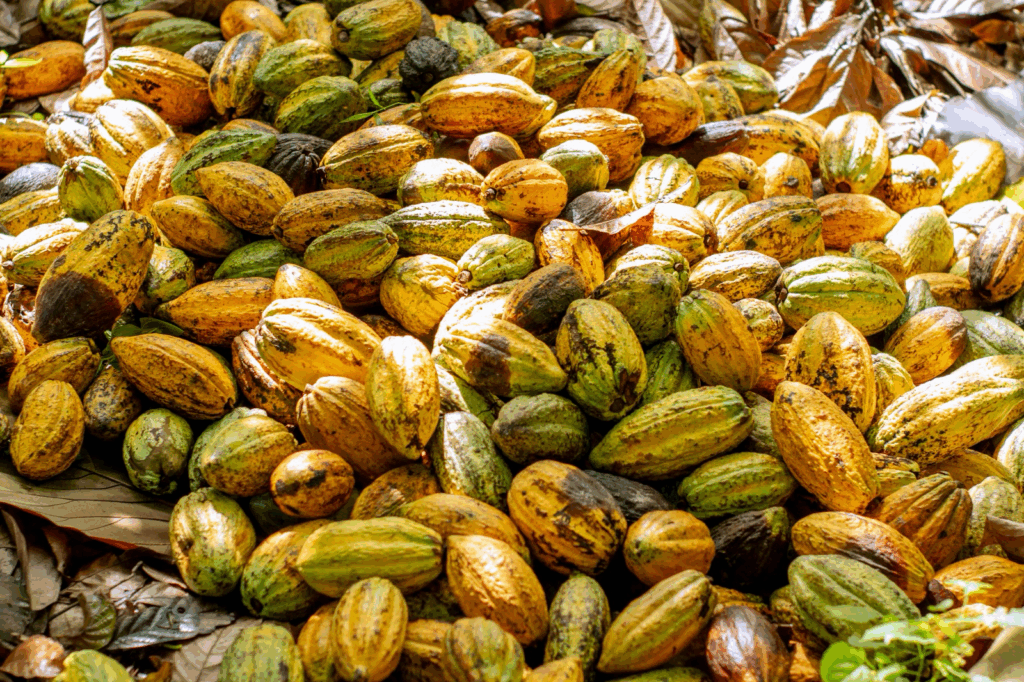
Africa’s cocoa producers, including Ghana, will see only limited economic gains from structurally higher global cocoa prices.
According to Fitch Solutions, the feedthrough of higher international prices to local farmers will also remain limited.
“While international cocoa prices will remain structurally higher in the years to come, we think that African producers will not capture the full benefits”.
Prices averaged US$8,900/tonne in the first seven months of 2025, more than triple the 2005-2023 average of US$2,500/tonne, caused largely by climate-related supply disruptions in West Africa that led to three consecutive years of global cocoa deficits. Although our Agribusiness team projects prices to ease to an average of US$6,900/tonne over 2026-2030, they will remain well above the long-term average as global stocks recover only gradually”, Fitch Solutions mentioned.
It added that structurally higher cocoa prices are unlikely to deliver a major windfall for African producers.
“Our view that structurally higher cocoa prices will not create major economic windfalls for Africa’s cocoa-producing nations in the coming years rests on three key factors that we outline below”, the UK-based firm pointed out.
First, it said the feedthrough of higher international prices to local farmers will remain limited.
The world’s two largest cocoa producers – Côte d’Ivoire and Ghana – set farmgate prices through government-run marketing boards. While both countries have raised farmgate prices in recent seasons and are likely to maintain them at elevated levels, the gap between farmgate and international prices remains wide.
“This reflects the fiscal and operational constraints of national marketing boards, which limit the extent to which governments can pass on global price gains to farmers. As a result, although cocoa farmers in Côte d’Ivoire and Ghana will see improved incomes, they are unlikely to capture the full upside of high market prices, limiting the broader impact on household consumption and domestic demand”, it alluded.
It continued that farmgate prices will remain far below market prices, limiting upside to farmer incomes.
Price Gap to Fuel Smuggling
Second, it said the persistent price gap will fuel smuggling from Côte d’Ivoire and Ghana to neighbouring markets and limit the positive impact of high prices on their external accounts.
“As Ivorian and Ghanaian farmers will be able to access higher prices in neighbouring countries that do not have government-set prices – such as Guinea, Liberia, Sierra Leone, and Togo – we anticipate that smuggling activity will intensify. These neighbouring countries already show substantial export increases that cannot be explained by price movements alone, indicating that cocoa from Côte d’Ivoire and Ghana is being diverted across borders.
While this will bolster the export earnings of neighbouring economies, it stressed that this will deprive Côte d’Ivoire and Ghana of a key source of foreign exchange.
It added that whereas short-term risks associated with this are limited (due to elevated gold prices), and sustained cocoa smuggling will weaken the ability of Côte d’Ivoire and Ghana to absorb future external shocks.
DISCLAIMER: The Views, Comments, Opinions, Contributions and Statements made by Readers and Contributors on this platform do not necessarily represent the views or policy of Multimedia Group Limited.
DISCLAIMER: The Views, Comments, Opinions, Contributions and Statements made by Readers and Contributors on this platform do not necessarily represent the views or policy of Multimedia Group Limited.
Source: myjoyonline.com










